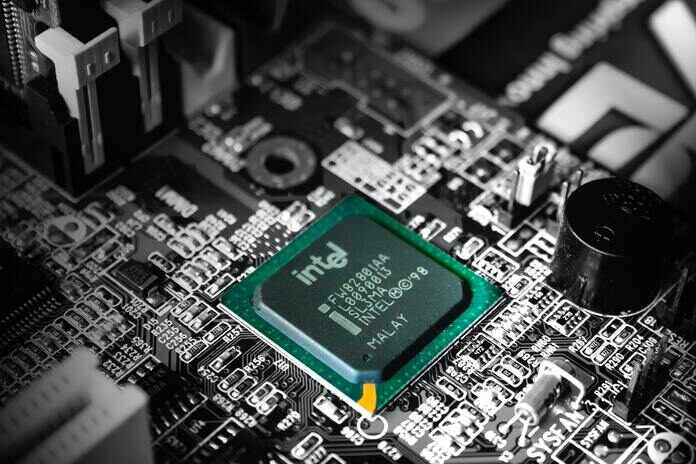Intel Corp. (NASDAQ:INTC), the leading manufacturer of personal computer processors, has unveiled a series of new chips for both PCs and data centers, aiming to secure a larger share of the rapidly expanding artificial intelligence (AI) hardware market.
Among the newly introduced products are updated Xeon server chips, representing the second revision in less than a year. These chips boast enhanced performance and memory capabilities while operating more efficiently, and consuming less electricity. Simultaneously, Intel introduced Ultra Core chips designed for laptops and desktop computers, enabling PCs to directly process AI functions.
A notable addition to Intel’s lineup is the Gaudi 3, the latest installment in a line of chips competing with Nvidia Corp.’s highly regarded H100. Termed AI accelerators, these chips play a crucial role in the development of services like chatbots. Intel asserts that the Gaudi 3, scheduled for release in 2024, will outperform Nvidia’s H100.
Intel’s stock experienced a surge of up to 5.6% in New York trading following the announcement, outpacing the 3.1% gain observed in the Philadelphia Stock Exchange Semiconductor Index.
CEO Pat Gelsinger sees AI features as a key driver for Intel’s growth, especially amid challenges from competitors like Advanced Micro Devices Inc. and Nvidia. Gelsinger is counting on AI capabilities to revitalize Intel, which has faced setbacks and challenges in the PC market.
While Intel faces increased competition, particularly from AMD, which has gained market share in PCs and servers, Nvidia has established dominance in data center chips with its AI accelerators. AMD is also gearing up to compete in the AI accelerator space with its upcoming MI300 chip.
Intel aims to differentiate itself by shifting more AI processing toward devices rather than centralized data centers. The new Ultra Core chips, facilitating this approach, will be available in approximately 230 PC models from manufacturers like Dell Technologies Inc. and Samsung Electronics Co.
Intel believes that a shift in the AI industry toward running completed software, rather than just training models, will benefit processors like the Xeon line in data centers and PC chips. Gelsinger highlighted the potential limitations of data centers, emphasizing the high costs and reduced responsiveness of systems when relying on internet connectivity.
Despite concerns about the impact of running AI software on laptop battery life, Intel assures efficiency improvements in the new Core parts, promising over 10 hours of battery life even during demanding tasks.
The updated Xeon range is projected to be 42% more efficient at handling AI-related workloads than its predecessor, introduced in January 2023. Intel also plans to release more versions of the Xeon line in the first half of the next year as part of its accelerated product release strategy, a key element in Gelsinger’s plan to revitalize the company and position it at the forefront of the trillion-dollar semiconductor industry. Gelsinger expressed confidence in the company’s comeback plan, stating, “We’re going to do a decade of semiconductor work in four years. That’s pretty crazy. We’re on track, baby.”
Featured Image: Unsplash















